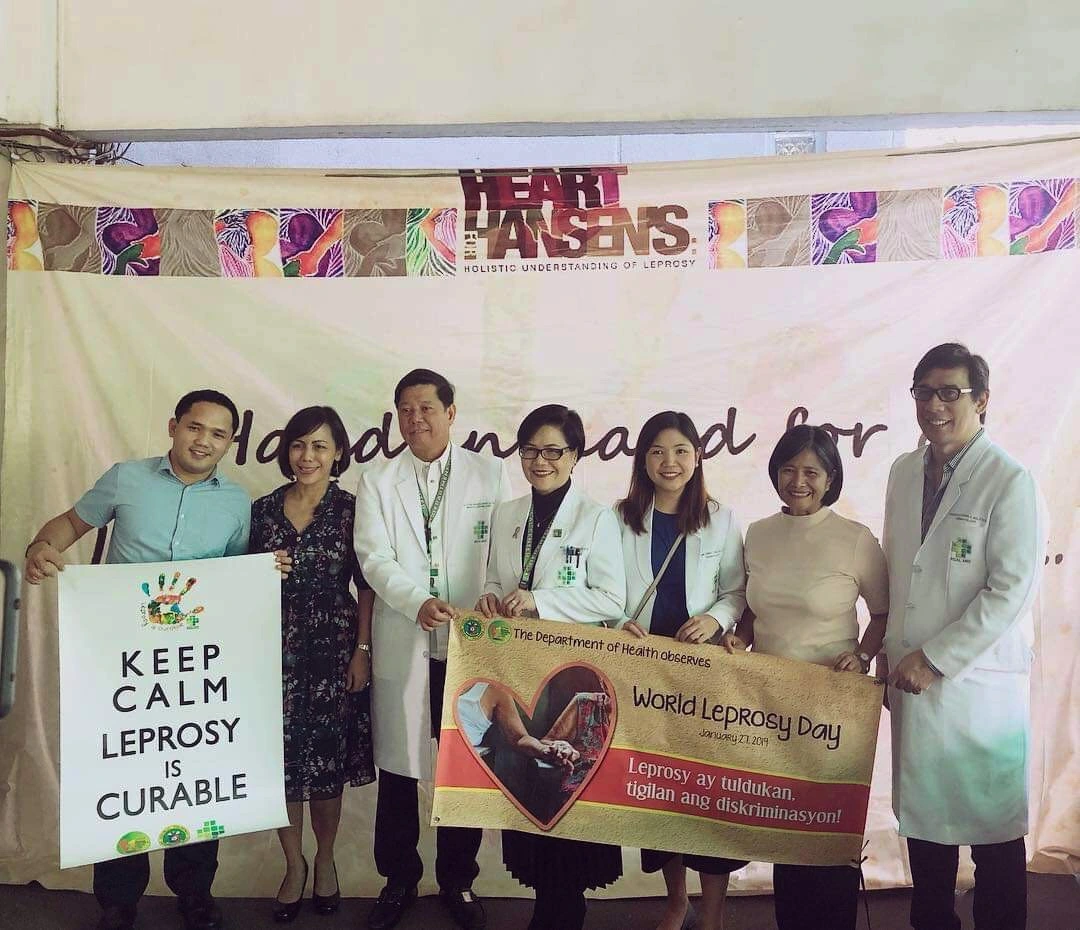- The Department of Health (DOH) is implementing the National Leprosy Control Program to address gaps in diagnosis and treatment.
- LEARNS is a mobile health (mHealth) tool that enables health care practitioners in remote areas to refer suspected leprosy patients to experts.
Manila, January 28, 2019 - The Philippines eliminated leprosy at the national level in 1998, seven years after the World Health Organization (WHO) declared its vision of a world free of leprosy. However, pockets of leprosy cases still exist in some regions, particularly in Ilocos Sur and Southern Mindanao. Over 1,000 leprosy cases are reported in the country annually, according to the Department of Health (DOH). In terms of absolute number of leprosy cases, the Philippines ranks first in the Western Pacific Region.
Gaps in healthcare, particularly in remote rural areas, hinder prompt diagnosis and treatment of leprosy. Moreover, according to the U.S. Centers for Disease Control and Prevention (CDC), the continued stigma against people affected by leprosy discourages them from seeking help when first symptoms appear, causing delay in diagnosis and development of disabilities. Many people affected by leprosy are unable to work due to disability caused by the disease or may face stigma that prevents them from working.
To address this challenge, the DOH is implementing the National Leprosy Control Program (NLCP) in partnership with other government agencies, local government units (LGUs), civil society groups and the private sector. The NLCP aims to achieve a leprosy-free Philippines by the year 2022 by ensuring the provision of comprehensive, integrated quality leprosy services at all levels of healthcare in the country. In 2012 the DOH and Novartis Foundation signed a Memorandum of Understanding and formed the DOH-Novartis Task Force to help develop innovative approaches to leprosy control in line with the broader NLCP.
In 2013, Novartis Healthcare Philippines and the DOH in partnership with the Novartis Foundation organized the “Best Practices and Innovative Ideas in the Fight against Leprosy Contest”, with the aim of encouraging innovation to sustain the country’s fight against leprosy in the post-elimination phase. The contest received a total of 35 contest entries—19 for the Best Practices category and 16 for the Innovative Ideas category.
“Mobile Teledermatology E-Referral System for Active Case Finding of New Leprosy Case”, the concept submitted by local tech company MetaHelix, was adjudged best entry in the Innovative Ideas category. Building on this innovative teledermatology approach, Metahelix with support from the DOH-Novartis Task Force and Philippine Council for Health Research and Development, developed the Leprosy Alert and Response Network System (LEARNS), the country’s first mobile phone-based leprosy teleconsultation system.
LEARNS is a mobile health (mHealth) tool that enables health care practitioners in remote areas to refer suspected leprosy patients to experts by sending a picture of the skin lesion and patient details through their mobile phone. LEARNS promotes early case finding and helps reduce delays in diagnosis and treatment. Using the LEARNS system, government health workers (physicians, nurses, midwives and barangay health workers) can send teleconsultations via either SMS or the LEARNS application. Aside from case finding, LEARNS also provides data for disease surveillance, reaction and treatment outcome monitoring, message broadcasting, patient education, and report generation.
After its successful pilot in Iloilo province in 2014, LEARNS is now being implemented in 29 provinces in 9 regions, with over 6,000 healthcare providers already trained in the system. The DOH plans to expand LEARNS in other provinces including Sulu Province in Autonomous Regions for Muslim Mindanao. LEARNS is now part of the DOH national leprosy management guidelines.
Novartis Healthcare Philippines joined the DOH and Rizal Medical Center in celebrating World Leprosy Day this year with the ribbon-cutting ceremony for “Artistica Leprae”, an art exhibit that aims to promote awareness on leprosy and help end discrimination, stigma and prejudice associated with the disease. The event, which also featured an audio-visual presentation on leprosy and a lay forum, was held on January 28, 2018 at the Rizal Med. Located in Pasig City, Rizal Med is a DOH-retained teaching and training hospital with a 300-bed capacity and a DOH-designated regional referral specialty center for dermatology.
Leading the ribbon-cutting ceremony were Rizal Medical Center Chief Dr. Relito Saquilayan, DOH National Leprosy Control Program Manager Dr. Julie Mart C. Rubite, Rizal Medical Center Department of Dermatology Chair Dr. Francisco Rivera IV, Rizal Medical Center Infectious Dermatology and Leprosy Unit Head Dr. Abelaine Venida-Tablizo, and Novartis Healthcare Philippines Corporate Affairs Head Ms. Christine Fajardo.

About Novartis
Novartis is reimagining medicine to improve and extend people’s lives. As a leading global medicines company, we use innovative science and digital technologies to create transformative treatments in areas of great medical need. In our quest to find new medicines, we consistently rank among the world’s top companies investing in research and development. Novartis products reach nearly 1 billion people globally and we are finding innovative ways to expand access to our latest treatments. About 125,000 people of more than 140 nationalities work at Novartis around the world. Find out more at www.novartis.com.
Novartis is on Twitter. Sign up to follow @Novartis at http://twitter.com/novartis